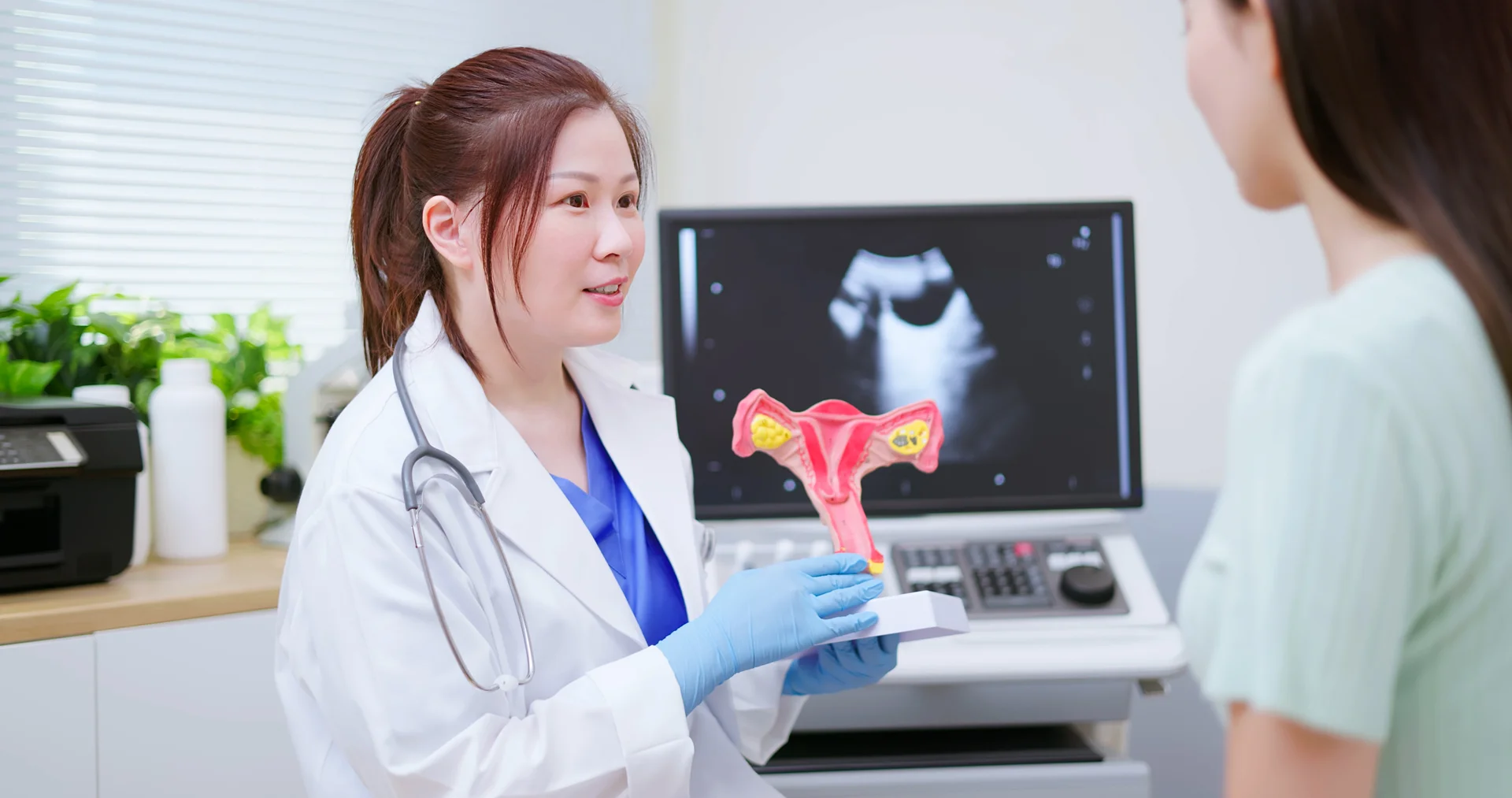Regulating Histamine Levels to Alleviate PCOS Symptoms
A raging storm of hormones lies at the root of polycystic ovary syndrome, wreaking havoc on women’s bodies. Now, new research suggests an unlikely culprit—histamine, the inflammatory molecule best known for runny noses and watery eyes. But histamine has a dark side. Uncontrolled, it can sabotage hormones, ignite inflammation, and derail women’s health.
The key to taming this storm? An enzyme called diamine oxidase. New evidence reveals diamine oxidase as a gatekeeper, regulating histamine levels and restoring balance. For women battling polycystic ovaries, diamine oxidase may offer a lifeline, quelling the inflammatory forces threatening fertility, cycles, and wellbeing.
Join us as we explore the promise of diamine oxidase for alleviating polycystic ovary syndrome and illuminate the mysteries linking histamine to hormonal harmony.
PCOS – An Overview
Polycystic ovary syndrome (PCOS) is a common hormonal disorder that affects approximately 8-13% of women of reproductive age. The exact cause of PCOS is unknown, but research suggests it often runs in families and involves abnormal hormone levels, including elevated insulin. The three hallmark features of PCOS are:
- Irregular periods – Ovaries do not regularly release mature eggs, leading to infrequent, absent, or irregular menstruation.
- Excess androgens – Elevated male hormones like testosterone, often resulting in symptoms like excess facial and body hair.
- Polycystic ovaries – Ovaries contain numerous small, undeveloped follicles that appear as cysts.
With PCOS, the ovaries develop many small fluid-filled sacs along the outer edge, rather than maturing and releasing one egg each month. These sacs contain immature follicles with eggs that cannot fully develop.
Research shows PCOS has a significant genetic component, with estimated heritability around 70%. However, environmental factors also play an important role in the expression of PCOS-related genes and progression of the condition.
Understanding Histamine and Its Role in the Body
Histamine is a chemical messenger produced by immune cells like basophils and mast cells. It is involved in immune responses, gastric acid secretion, and neuromodulation. Histamine exerts its effects by binding to specific histamine receptors.
Histamine is metabolized by two key enzymes:
- Diamine oxidase (DAO)
- Histamine N-methyltransferase (HNMT)
DAO breaks down ingested histamine while HNMT degrades endogenous histamine produced within the body. Imbalances between histamine production and degradation can lead to a condition known as histamine intolerance.
Symptoms of histamine intolerance mirror some of the common complaints of women with PCOS, including digestive issues, headaches, and skin problems. This suggests a potential link between excess histamine and hormonal imbalance.
The Estrogen-Histamine Connection
Female sex hormones like estrogen directly influence histamine levels. Estrogen increases histamine production and release from mast cells. It also inhibits DAO activity, allowing more histamine to circulate.
Across the menstrual cycle, histamine levels fluctuate in response to changes in estrogen. Estrogen peaks just before ovulation, leading to higher histamine that likely contributes to premenstrual symptoms. In PCOS, persistent estrogen dominance sustains heightened histamine activity.
This estrogen-histamine connection may explain some of the menstrual irregularities of PCOS. By disrupting normal hormonal cycles, elevated histamine could prevent proper ovulation.
Histamine and Hormonal Imbalance in PCOS
Excess histamine appears to directly contribute to the hormonal dysregulation of PCOS. Higher histamine increases mast cell activity and secretion of inflammatory compounds. This fuels inflammation and disrupts communication between hormones.
Additionally, histamine directly stimulates ovarian cells like granulosa cells. This excessive stimulation results in hormonal chaos and ovarian dysfunction.
For women with PCOS, the elevated estrogen sustains high histamine levels, leading to widespread effects on hormone balance. Lowering histamine burdens may help restore proper hormonal signaling.
Dietary Considerations for Women with PCOS

Diet is one of the most powerful tools for modulating histamine and alleviating PCOS symptoms. A low-histamine diet minimizes intake of histamine from food, decreasing the overall histamine load.
High-histamine foods like aged cheese, yogurt, and fermented foods should be avoided, while an anti-inflammatory diet rich in fresh fruits, vegetables, and omega-3s tames histamine.
For women with PCOS, lowering dietary histamine reduces inflammation and improves estrogen metabolism. This dietary approach stabilizes hormones critical for ovulation and regular menstrual cycles.
Other healthy food options for women with PCOS include:
| Diet | Description |
| Mediterranean diet | Abundant in fruits, vegetables, whole grains, legumes, nuts, olive oil, and fish, the Mediterranean diet provides a nutritious and sustainable approach. It emphasizes anti-inflammatory foods while limiting saturated fats, processed meats, and refined sugars. |
| Low glycemic index (GI) diet | Choosing foods with a low GI, like non-starchy vegetables, lean proteins, nuts, minimally processed whole grains, and berries helps control blood sugar spikes. This steady glucose control is key for women with PCOS. |
| Anti-inflammatory diet | Prioritizing dark leafy greens, fatty fish, berries, citrus fruits, cruciferous vegetables, spices like turmeric, and healthy fats supplies nutrients that reduce inflammation. Managing inflammation is critical in PCOS. |
| DASH diet | The DASH diet recommends increased intake of fruits, vegetables, lean proteins, low-fat dairy, and whole grains. This balanced approach benefits overall health in PCOS. |
| Whole grains | Incorporate minimally processed whole grains like oats, brown rice, quinoa, and buckwheat for important fiber, vitamins, and minerals. |
| Non-starchy vegetables | Focusing on nutrient-dense, low-calorie vegetables like leafy greens, broccoli, cauliflower, and asparagus provides bulk and antioxidants. |
| Lean proteins | Choose plant and animal proteins like fish, poultry, legumes, tofu to support muscle mass and provide essential amino acids. |
| Healthy fats | Include sources of anti-inflammatory fats like olive oil, avocados, nuts, seeds, and fatty fish for hormone balance. |
The Gut-Hormone Connection
Growing evidence highlights the influence of gut microbes on hormone balance. In PCOS, an imbalanced gut microbiome impairs estrogen metabolism in the liver. This results in greater estrogen reabsorption and hormone disruption.
Certain microbial metabolites like short-chain fatty acids also modulate hormone levels. Propionate and butyrate inhibit enzymes needed for estrogen production. An altered microbiome composition reduces these beneficial compounds.
Supporting microbial diversity through diet, prebiotics, and probiotics helps optimize the gut environment. This facilitates proper estrogen processing and eliminates excess hormone activity in PCOS.
Other Implications of Excess Histamine in PCOS
In addition to ovarian dysfunction, higher histamine levels contribute to other PCOS complications:
- Uterine fibroids: Histamine promotes fibroid growth by increasing estrogen sensitivity.
- Increased body hair: Estrogen and histamine stimulate hair follicle growth.
- Heart disease: Chronic inflammation from histamine aggravates cardiovascular risk factors.
- Fatty liver: Impaired liver function allows greater estrogen reabsorption.
- Gestational diabetes: Improper pancreatic cell signaling.
By driving inflammation, histamine worsens the comorbidities of PCOS. Controlling histamine is key for reducing cardiovascular, metabolic, and reproductive risks.
Research and Diagnostic Criteria
Several genes regulating estrogen synthesis and metabolism are implicated in PCOS, particularly CYP17 and CYP19. Variants in estrogen receptor genes are also associated with PCOS. This demonstrates the genetic basis of hormone imbalance in PCOS.
Key diagnostic criteria for PCOS include elevated androgens, polycystic ovarian morphology on ultrasound, and irregular menstrual cycles. Blood testing reveals elevated LH, testosterone, DHEA-S, and insulin. Fecal microbiome analysis demonstrates increased Clostridia species.
rRNA gene sequencing characterizes the altered microbial composition and loss of diversity. This testing provides objective biomarkers for PCOS diagnosis and treatment monitoring.
The Role of DAO in Managing PCOS Symptoms
Excess histamine is both a consequence and driver of estrogen dominance in PCOS. Lowering histamine burdens through diet and DAO supplementation may provide therapeutic benefits by stabilizing female sex hormone balance.
Targeting histamine offers a promising avenue for improving hormonal health in PCOS and related conditions like fibroids and infertility. A multi-pronged approach addressing histamine, estrogen metabolism, and the gut microbiome can restore proper endocrine signaling for women’s health.
Try SeeBeyond Medicine’s DAO-HIST

If you’re experiencing symptoms of histamine intolerance or PCOS, consider our DAO-HIST supplements. Designed to support enzyme function and balance histamine levels, DAO-HIST can be a beneficial addition to your health regimen.
To learn more on how these supplements can help you, you may reach us at (914) 768-1658 or simply send us a message!
